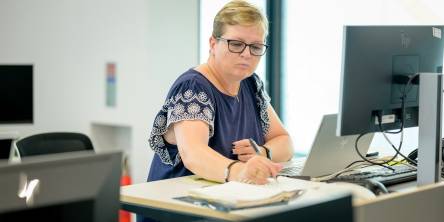The Evolution of Packaging Materials: Plastic to Plants

The world of packaging has changed dramatically over the course of the last one hundred years. The switch from plastic use to the use of sustainable plant-based materials has come from this place.
This evolution is particularly important for B2B businesses, especially food-related ones, since it helps them make appropriate decisions about packaging options, considering both sustainability and consumers’ demands. This article considers the path of packaging media from plastic to plant-based media and what it holds for the business.
The Rise of Plastic Packaging
Pet is wastage products that gained acceptance during the middle of the 20th century because of flexibility, toughness, and price. A real game changer in the packaging, storage, and transportation industry, it provided business entities with an easy-to-use and long-lasting product.
- Versatility: Plasticity was a major strength of plastic since it could be formed to take on almost any size and shape of the consumers’ desire it was applicable in packaging, preparation, processing, storage, transportation Preservation, manufacturing of food products, decorative items, toys, household products and as industrial material.
- Cost-Effectiveness: The cheap cost of production of plastic made it favorable to be used by businesspersons who wanted to cut their expenses without compromising on quality.
- Durability: They shielded the items from moisture and contaminants, were impermeable to air, and were known as good preservatives to increase the shelf life of perishable goods.
However, the use of plastic has turned into a disadvantage because it harms the environment. The fact that conventional plastics are not biodegradable has greatly contributed to pollution of the environment thus the push for the adoption of green products.
The Environmental Impact of Plastic
The record embracing the use of plastic packaging has led to several problems mainly in the area of waste and pollution. Knowledge of these effects is perhaps the reason why enterprises have begun to shift to more sustainable forms of packaging.
- Pollution: Of the waste that ends up in the land and oceans, plastics are ranked at the top in terms of volume. They disintegrate into microplastic particles which are disastrous to wildlife and the environment.
- Non-Biodegradability: Conventional plastics are known to endure for several centuries thus causing harm in the environment.
- Consumer Backlash: With more awareness being created of the effects of plastic pollution, more customers are now opting for green packaging, therefore, companies must meet their demands.
The Shift Towards Plant-Based Materials
As a result of these complications caused by plastic in the environment, the packaging sector has turned to using plant-based materials. These materials are biodegradable as well as renewable making them a more suitable material to use.
- Bioplastics: Replacing carbon sources with cornstarch or sugarcane, bioplastics are biodegradable materials that degrade more easily than standard plastic merchandise.
- Paper and Cardboard: These are materials coming from trees and other plants hence biodegradable and are also recyclable, which makes them a favorite in the packaging. For instance, bakery boxes that are made of recycled cardboard are cheap and they can be reused.
- Plant-Based Films: Such films manufactured from natural sources such as cellulose, offer a nature-friendly solution for packaging that has heretofore been done using plastics which are non-degradable.
Benefits of Plant-Based Packaging
The following are the benefits of plant-based packaging materials as compared to traditional plastic packaging materials: Here’s why more companies are turning to the latter.
- Biodegradability: Biodegradable materials, in particular, plant-derived ones, break down upon disposal hence minimizing the amount that is dumped in the environment, especially in the beaches.
- Renewability: Another reason is that plant-based materials in contrast to the fossil fuels that are used in the production of traditional plastics are renewable.
- Consumer Preference: In the current and future consumer market, consumers will be environmentally conscious hence, will be willing to support brands that use plant-based packaging, like bakery boxes with window wholesale.
- Brand Differentiation: Rising your brand to packaging ecology makes your brand unique and appealing to customers and be in a better position to have a good branding reputation.
Challenges in Adopting Plant-Based Packaging
Thus, the advantages of plant-based packaging are obvious, but together with them, there are several difficulties that must be taken into account by businesses when switching from conventional plastics.
- Cost: It can at times be costly to use plant material as opposed to synthetic material and therefore have implications on the pricing models of products.
- Availability: Another disadvantage of plant-based materials is that they are often scarce, especially as the demand for the raw products increases this may lead to some issues with the supply chain.
- Performance: Thus, although claims that plant-based materials are getting better are getting more frequent, plant-based materials still cannot offer the same level of durability and/ or adaptability in all contexts as traditional plastics can. Here, it is recommended that businesses consider the efficiency of these materials by the requirements that the company has in place for packaging.
The Future of Packaging
The evolution of packaging materials is far from over. Certain trends have been noticed to be emerging and as technology improves and consumer preference steadily changes, the future of packaging will rely on more complex and outstanding approaches.
- Innovative Materials: Research is now being conducted to identify new materials that will give the advantages of plant-based packaging and at the same time avoid the disadvantages. For a case, the use of materials from algae or fungi is currently being researched to be used in place of packaging.
- Circular Economy: The idea of a circular economy where more packaging material is reusable, recyclable, or biodegradable will grow in demand. There will be a huge requirement to adapt the packaging to fit the purpose of its final destination, to be recycled or repurposed.
- Regulatory Changes: Currently, various governments worldwide are tightening the measures concerned with packaging waste. To avoid these penalties and become prepared for future change, sustainable practices should be adopted now by firms.
The run from plastic packaging to plant-based packing is a revolution strategized and highly effective in the journey of business sustainability. It is important for B2B businesses particularly the food and retail sectors to appreciate this change to satisfy the customers hence the need to realize ever-emerging regulations that seek to support the sustainability of our environments.
With the increased consciousness of the planet’s environmental status, firms are in a position to use plant-based materials, and other green packaging materials to minimize their impact on the environment, as well as improve their public image so as to effectively compete for consumers in the market. And that is why, whether you are buying bakery boxes wholesale or bakery boxes with a window in bulk, switching to eco-friendly packaging is a strategy for tomorrow – for your enterprise and for the environment.
Similar Articles
Good leadership is a feature of such a person that they think of the whole team and not only themselves. Leadership is your behaviour, not your status by title.
In the world of civil construction, a small mistake can have a big impact. Whether it’s delays, budget overruns, or safety issues, the costs of poor staffing are often overlooked until it’s too late.
Learn how to choose winning products for your dropshipping website with smart research, trend analysis, and testing tips for better profits.
In today’s fast-growing lighting industry, LED strip lights have become one of the most popular solutions for modern lighting design.
Discover how partnering with a software developer recruitment agency can prevent burnout in development teams and enhance project sustainability.
Learn how corporate event catering boosts image, fosters networking, reduces stress, and creates memorable experiences at professional gatherings.
Discover essential commercial HVAC maintenance strategies to cut costs, boost efficiency, and ensure comfort for employees and customers.
Maximize your corporate mentoring program's impact. Discover best practices for strategic implementation to foster growth and development.
Strong bookkeeping turns financial chaos into clarity, guiding smarter decisions, ensuring compliance, and building long-term business stability.









